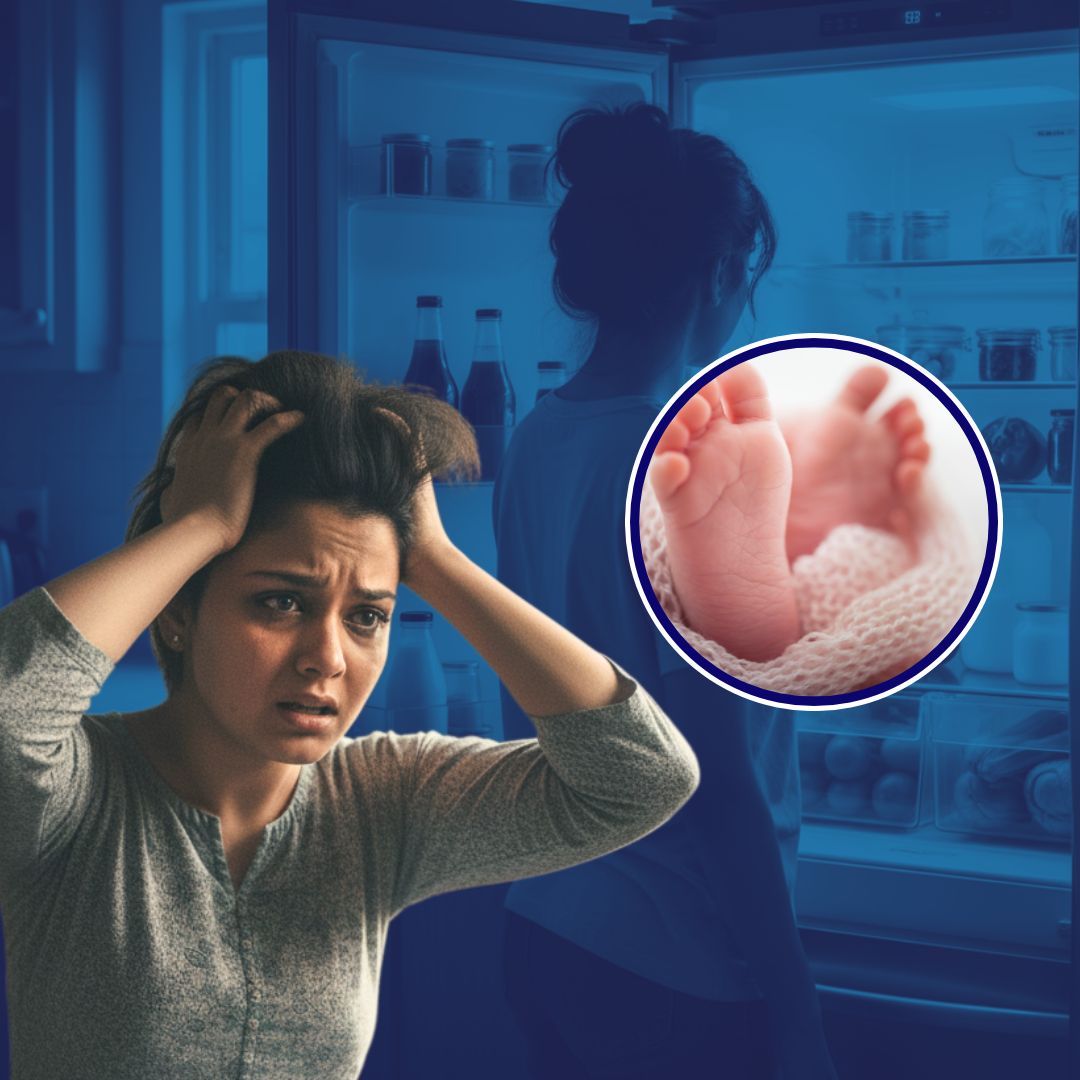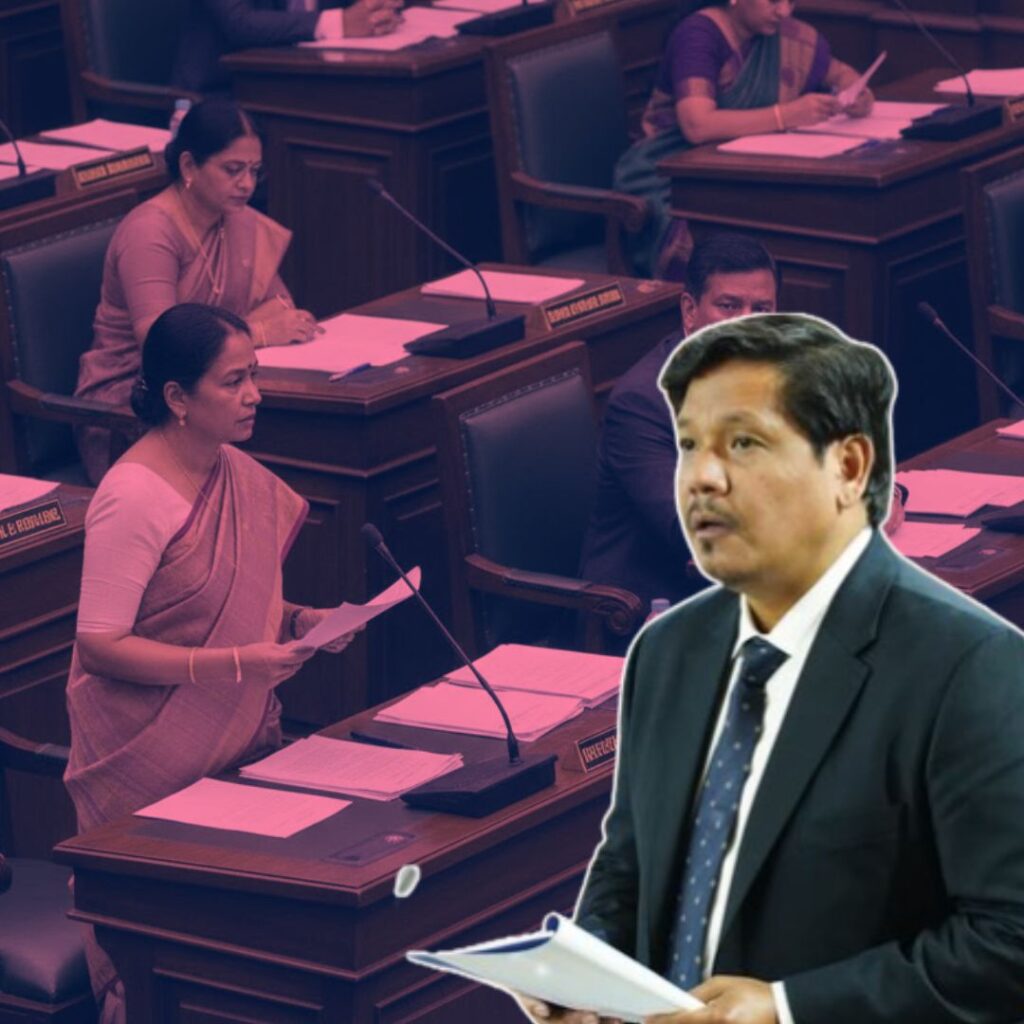A 23-year-old woman in Moradabad, Uttar Pradesh, put her 15-day-old newborn in a refrigerator on September 5, 2025, claiming the baby “was not sleeping.” The grandmother heard the infant’s cries and saved the child unharmed. Medical examination confirmed the infant’s well-being.
The mother was diagnosed with postpartum psychosis, a rare but serious mental health condition affecting some women after childbirth. The family initially suspected evil forces and turned to traditional rituals before seeking medical help based on a relative’s advice. Officials and doctors stressed the importance of postpartum mental health awareness and timely psychiatric treatment to prevent such dangerous incidents.
Understanding Postpartum Psychosis
Postpartum psychosis is a severe psychiatric disorder occurring in about 1 to 2 per 1,000 new mothers, often within two weeks of childbirth. Symptoms include hallucinations, delusions, extreme mood swings, confusion, irritability, insomnia, and sometimes, loss of contact with reality.
Unlike common postpartum “baby blues,” which are mild and self-limiting, postpartum psychosis requires immediate medical attention to mitigate risks of harm to mother and child.
The condition may involve psychotic symptoms such as paranoia and disorganized thinking, making it a psychiatric emergency. Treatment typically involves hospitalisation and a multi-faceted approach, including antipsychotic medications, mood stabilizers, and sometimes benzodiazepines to restore normal sleep patterns.
Treatment and Support for Postpartum Psychosis
Managing postpartum psychosis involves medications like antipsychotics and mood stabilizers, sometimes combined with benzodiazepines, to control severe symptoms. Electroconvulsive therapy (ECT) may be used for cases resistant to drugs.
Psychological therapies such as cognitive-behavioural therapy and psychoeducation support recovery and help maintain long-term mental health. Treatment must balance medication safety when mothers breastfeed. Maintaining mother-infant bonding alongside mental health care is emphasized as essential for recovery. Emotional and practical support should extend to family members, who also experience stress due to the illness.
Social Stigma and Lack of Awareness in India
In India, postpartum psychosis remains largely misunderstood and shrouded in stigma and superstition. Many families and communities equate its symptoms with possession by evil spirits or supernatural forces, leading to delayed medical intervention.
Traditional healers and exorcism rituals often become the first line of “treatment,” undermining urgent psychiatric care. This reflects broader cultural taboos around mental health, where psychiatric illnesses are frequently hidden or denied.
Studies suggest that awareness about postpartum mental health disorders, including postpartum psychosis, is notably low; only about 35% of husbands of new mothers demonstrated adequate understanding of the condition in a recent survey, while even healthcare providers sometimes lack full knowledge. This lack of education and social support delays timely diagnosis and treatment, increasing risks to mothers and infants.
Efforts to improve public awareness and dispel myths are critical. Medical professionals advocate integrating mental health screenings into routine prenatal and postnatal care and promoting community education about these conditions.
Reducing stigma by normalising conversations about postpartum mental health can encourage affected mothers to seek help without fear of judgment or isolation. Support networks involving family, healthcare workers, and communities are essential for early identification and effective management of postpartum psychosis in India’s diverse social contexts
The Logical Indian’s Perspective
This heartbreaking incident highlights the critical need for societal compassion and robust healthcare systems for maternal mental health. Misunderstandings and superstitions about postpartum psychosis delay essential treatment and endanger lives.
The Logical Indian advocates for increased awareness, destigmatisation, and accessible psychiatric care to protect vulnerable mothers and their children. Promoting empathy, dialogue, and education on postpartum mental health can foster a more supportive environment for affected families.












